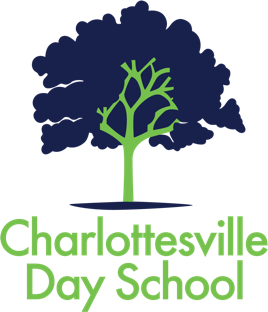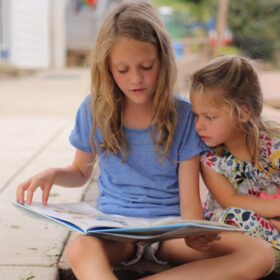Preschool
As our youngest students begin their educational journey and begin to explore the world around them, they are supported by a dedicated team of teachers who provide a safe and loving environment.
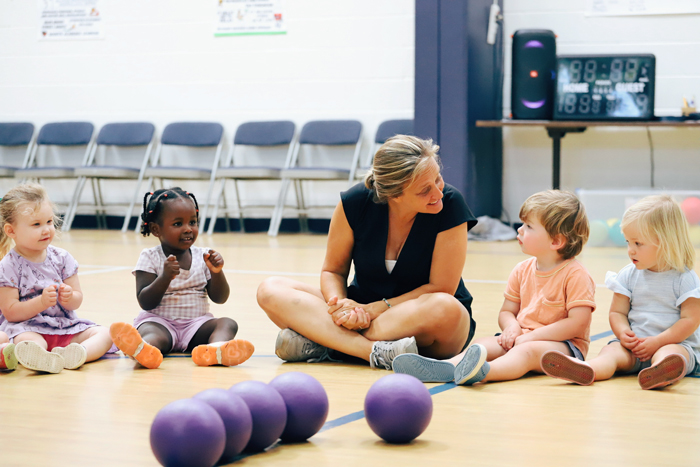
Cubs (age two at the start of school year)
Children in this age group are introduced to the concept of school as a safe and nurturing place to play with other young children. They develop social skills and learn how to interact positively in a group. In class, children learn primarily through theme-based exploration and play. Teachers guide the children through hands-on, concrete activities that develop their senses and heighten awareness of their environment. Classroom activities include the use of manipulatives, sensory materials, games and stories. Enrichment experiences include music, art, Spanish, and fitness and wellness education.
Students Speak
Book Buddies
Older and younger students pair up for shared reading and mentorship

Pandas (age three at the start of school year)
Children in this age group continue developing their social skills through cooperative and dramatic play. The children learn to work together in small groups. They establish and follow classroom rules. They learn about science and math concepts as they compare, classify and experiment. Children explore and make discoveries within their environment. Teachers serve as facilitators in concept development and expanding language skills. Language and literature play a major role in this theme-based curriculum. Children are introduced to narratives through storytelling, flannel board stories, big books, and puppets. These activities also play an important role in fostering friendships and helping children resolve conflicts. Teachers provide a rich variety of new vocabulary related to changing classroom themes. Enrichment experiences include music, art, Spanish, and fitness and wellness education.
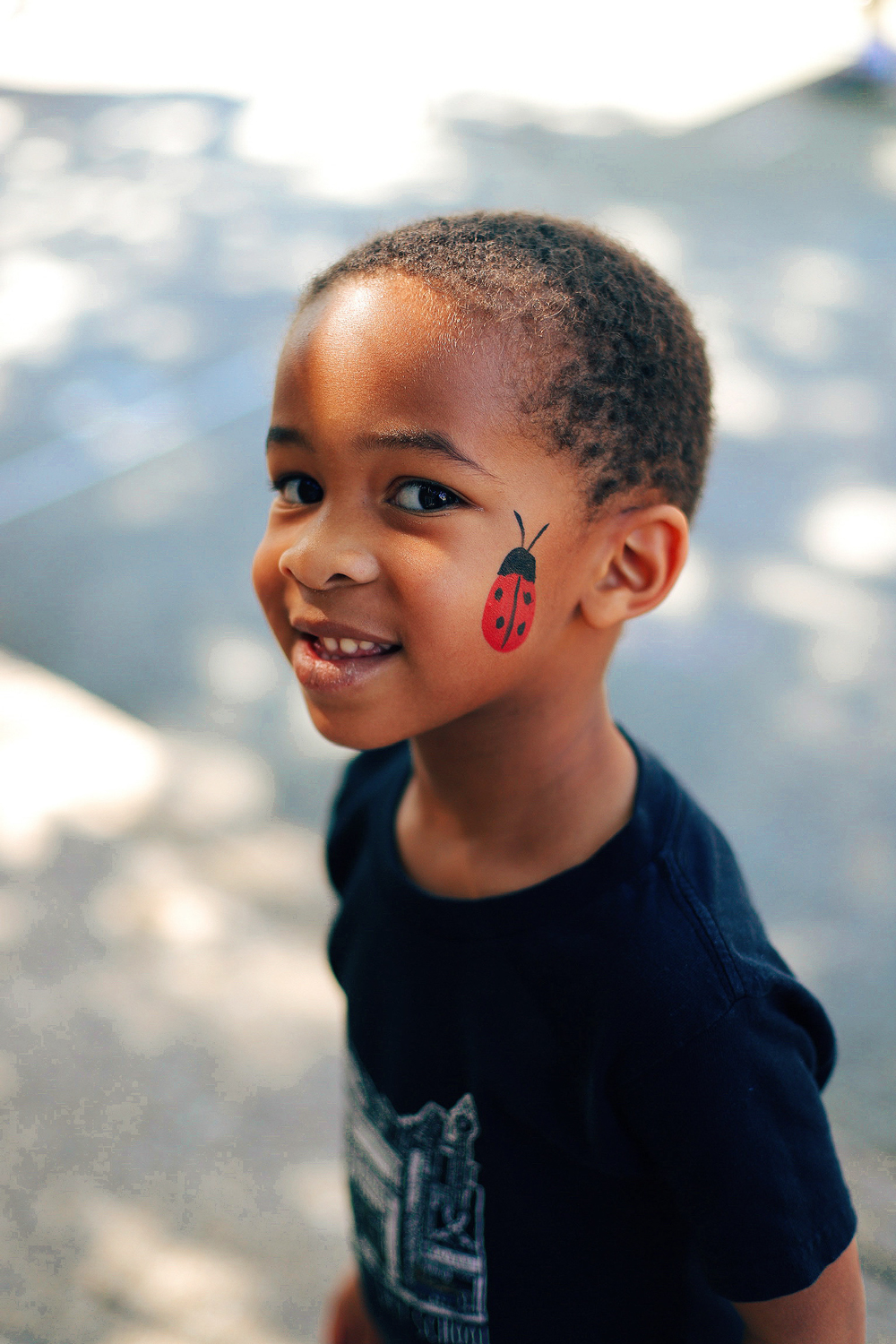
Grizzly Bears (Pre-Kindergarten)
Through cooperative and dramatic play, pre-kindergarten children continue to develop their social skills. Working together in small groups, they learn about science and math concepts and explore and make discoveries within their environment. Language and literature are important parts of a theme-based curriculum, engaging children in narratives through storytelling, flannel board stories, big books and puppets. These activities build friendships and help children resolve conflicts. Teachers provide a rich variety of new vocabulary related to changing classroom themes. The children work on learning beginning sounds, foundational math concepts, handwriting, and sentence writing. Enrichment experiences include music, art, Spanish, and fitness and wellness education.
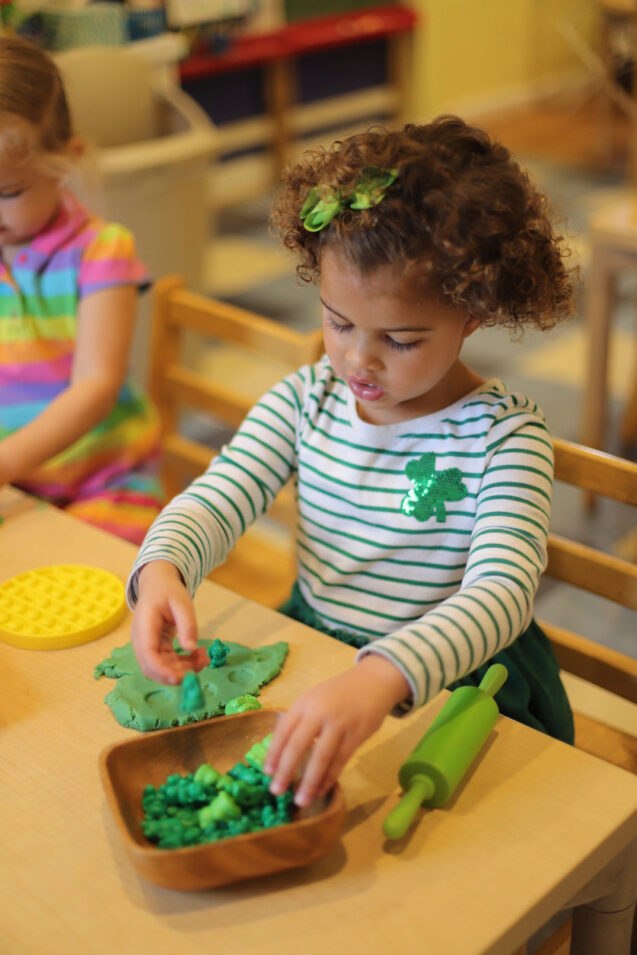
Preschool Spanish
Foreign language learning in preschool and the elementary grades improves listening abilities, memory function, creativity, and critical thinking skills. All preschool students at CDS are exposed to Spanish language and culture through art, singing songs, playing active games and reading stories. Preschoolers learn basic Spanish vocabulary and also learn familiar expressions. The CDS foreign language curriculum in preschool integrates speaking, listening, and cultural activities. The CDS foreign language program complements classroom instruction with coordinating themes in math, science, social studies, and language arts.
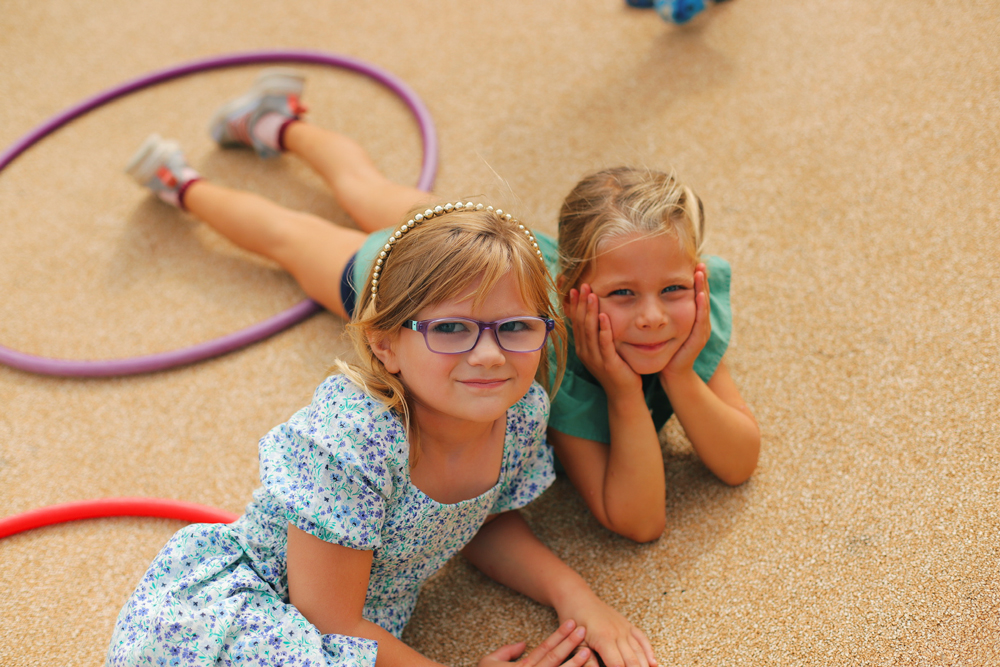
Preschool Music
CDS students are exposed to a challenging and joyful music program. Beginning in preschool and extending through middle school, students sing, dance, play instruments, read simple rhythmic notation and learn to use Solfege with hand signs. Students are given numerous opportunities to perform through Whole School Circles and theater productions. The CDS Preschool Music Program is a gateway to teach students the joy of learning and expand interests in mathematics, reading, and even social studies.
